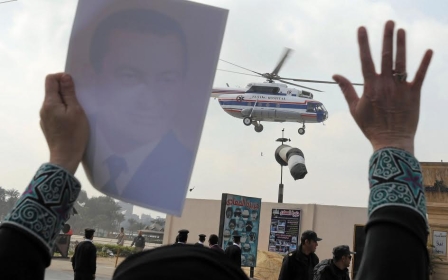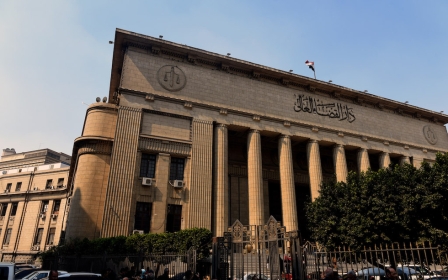Former Egypt president Hosni Mubarak to be released this week

Former Egyptian president Hosni Mubarak is to leave military hospital this week, his lawyer said, after an appeals court acquitted the ex-president of involvement in the killing of protesters during the 2011 uprising.
"The prosecutor general agreed to release Mubarak, and he can now go home when the doctors decide he is able to," Farid al-Deeb said, adding that Mubarak is banned from leaving Egypt pending an ongoing graft investigation.
"He will go to his home in Heliopolis," Deeb told Reuters, referring to an upscale district of central Cairo.
Asked if Mubarak would go home on Monday, he said: "No, but tomorrow or after tomorrow."
Mubarak - who was president for almost three decades and is now 88 - has been in detention at a military hospital in Cairo since the uprising.
Mubarak was cleared of murder charges on 2 March in his final trial, having faced various charges ranging from corruption to ordering the killing of protesters who ended his 30-year-rule.
Following that judgement, many expressed sadness - but not surprise - at the acquittal.
"The verdict was completely expected," Mohamed Mostafa, a researcher at the Egyptian Commission for Rights and Freedoms, told MEE.
"People are living in such bad conditions that Mubarak's acquittal doesn't make any difference to them," he said.
"The economy is in a horrible state. There is torture, mass detentions and terrorism. These are the things that are occupying people's thoughts now."
Sara al-Masry, a sociologist and adjunct professor at the American University in Cairo, said many Egyptians believed Mubarak's trials had simply been used as a way to pacify people following the uprising.
"The trials simply served as tranquilisers. The [authorities] just needed such steps to get people to stop mobilising."
Mubarak had one more jail sentence to serve, but was cleared after serving time for the murder charges, judicial sources and the state news agency said.
The prosecution subtracted the time served in the murder case from the time he was meant to serve for a separate case in which he was found guilty of appropriating funds reserved for maintaining presidential palaces.
Mubarak was originally sentenced to life in prison in 2012 for conspiring to murder 239 demonstrators during the 18-day revolt - an uprising that sowed chaos and created a security vacuum but also inspired hope for democracy and social justice.
An appeals court ordered a retrial that culminated in 2014 in the case against Mubarak and his senior officials being dropped.
An appeal by the public prosecution led to a final retrial by the Court of Cassation, the highest in the country, which acquitted him on 2 March.
Middle East Eye propose une couverture et une analyse indépendantes et incomparables du Moyen-Orient, de l’Afrique du Nord et d’autres régions du monde. Pour en savoir plus sur la reprise de ce contenu et les frais qui s’appliquent, veuillez remplir ce formulaire [en anglais]. Pour en savoir plus sur MEE, cliquez ici [en anglais].




